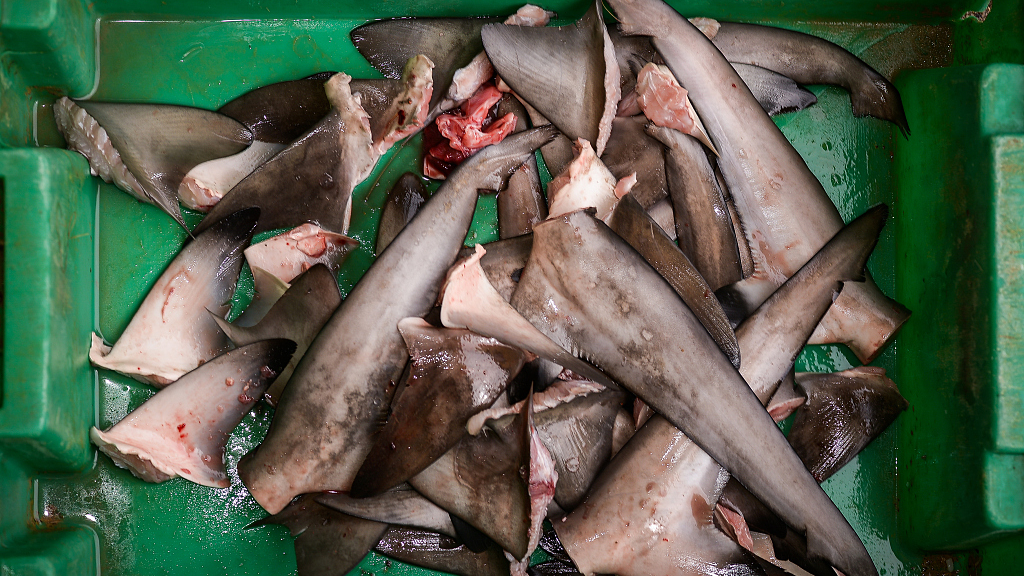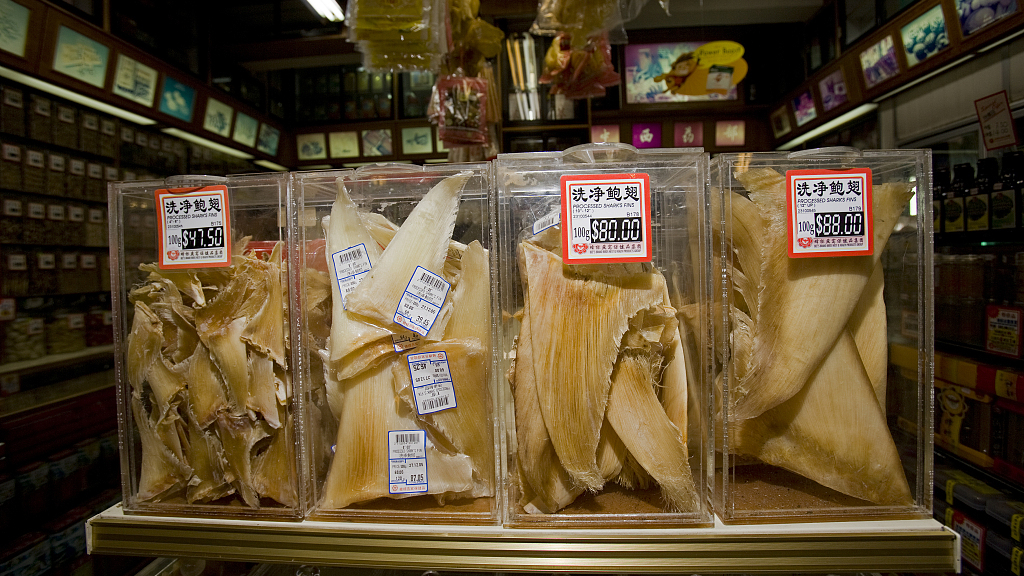The New Jersey Assembly passed a bill on Monday prohibiting the possession, sale, trade, distribution, and sale of shark fins for commercial use, the Humane Society revealed in a press release. New Jersey is now set to become the 13th American state to ban shark fin products, alongside California, Delaware, Hawaii, New York, and Washington, for example.
The bill was approved with a vote of 53 to 18, and will now be sent to Governor Phil Murphy for signing.
"While the act of shark finning – cutting the fins off sharks, often while they are still alive, and throwing the animals overboard to slowly die – is prohibited under federal law, the U.S. market for fins continues to fuel the practice in foreign and high seas that have lax shark finning bans or inadequate shark management and conservation policy," the Humane Society explained.
According to Brian Hackett, the organization's New Jersey director, "this critical law will ensure that the ecologically wasteful and cruel trade will be prohibited within New Jersey's borders."

Shark fins, Thailand Ranong Ranong. /VCG Photo
Shark fins, Thailand Ranong Ranong. /VCG Photo
A statement from New Jersey Assembly Appropriations Committee reads that a person who violates the bill's prohibitions is subject to a civil administrative penalty between 5,000 and 15,000 U.S. dollars, if it is the first offense; a penalty between 15,000 and 35,000 U.S. dollars for the second offense; and penalty of 35,000-55,000 U.S. dollars, if it is a third or subsequent offense. In this last case, the lawbreaker can also face a maximum sentence of one year. A person or business holding a commercial or recreational fishing license or permit that violates the bill could also have their license or permit suspended or revoked.
On November 20, the U.S. House of Representatives voted 310 to 107 and passed the Shark Fin Sales Elimination Act, led by U.S. Representatives Gregorio Sablan (Northern Mariana Islands) and Michael McCaul (Texas). Now, the Act has to pass the Senate, before going to the president.
More than 200 restaurants in the U.S. sell shark fin soup
Shark fins have a high commercial value and are used mainly in shark fin soup, a popular and expensive dish in East Asian societies, seen as a symbol of prosperity. Served at banquets and special occasions, the demand for these dishes continues to perpetuate the practice.
Animal Welfare Institute created a directory of restaurants that offer shark fin in the U.S. Even though the directory doesn't include all states (20 of them don't have reliable data ), it's an effort to pressure both private businesses and authorities to enforce existing laws.
In California, the ban on the sale, possession, and distribution of shark fins has been in place since 2012 but there are still more than 50 restaurants selling shark fin dishes, including some vegetarian claiming to sell imitations.
A National Geographic article dated January 2019, indicated that shark fin trade in banned states went "underground," and enforcement agencies find it difficult to prove the cases. Besides, fines and jail sentences have little deterrent effect.

Processed shark fin sold in Singapore. / VCG Photo
Processed shark fin sold in Singapore. / VCG Photo
Consumption in China declined 80%
According to WildAid, consumption of shark fin has fallen by more than 80 percent in China, with young generations of Chinese abandoning the traditional shark fin soup. The report "Sharks in Crisis: Evidence of Positive Behavioral Change in China as New Threats Emerge" stated that Chinese mainland consumers changed behaviors due to awareness campaigns and a government banquet ban.
Hong Kong Special Administrative Region (HKSAR) is the largest importer of shark fin, importing an average of 9,069 metric tons (mt) a year between 2000 and 2016, according to wildlife monitor, TRAFFIC. Malaysia (average 2,556 mt/year), and Singapore (1,587 mt/year) are the other top importers of shark fin.
Data from Hong Kong's Census and Statistics Department reported a sharp decrease in consumption has contributed to a reduction in imports by over 50 percent. Statistics indicated that imports dropped from 10,210 tons in 2007 to 4,979 tons in 2017.
Another TRAFFIC report indicated that Macao SAR is the third-largest destination market for shark fins by value, with an average of 100 tons of shark fins entering the region annually.
However, the researchers found no CITES trade records for sharks imported between 2010 and 2016, despite encountering two instances of CITES-listed sharks on menus. This means that there is a lack of adequate oversight and traceability, said report author Wilson Lau.
73 million sharks finned annually
Fins from up to 73 million sharks are used in shark fin soup each year, reports WildAid. Sharks are crucial in maintaining healthy oceans because as top predators they help keep balance in their habitats. More than 70 species are at risk of extinction.
Besides being a species that matures slowly, sharks have slow reproductive rates, and produce few offspring, making them more vulnerable to extinction. Adding to this situation, populations face a fast decline due to years of overfishing for their fins, cartilage, meat, and liver oil. In the case of finning, the animals are captured, mutilated, and left to die in the water, making the act extremely cruel and wasteful.
Animal Welfare Institute adds that approximately 50 million more sharks die annually as by catch in unregulated fisheries, often through the use of destructive and indiscriminate fishing methods such as longlines, gillnets, and trawls.